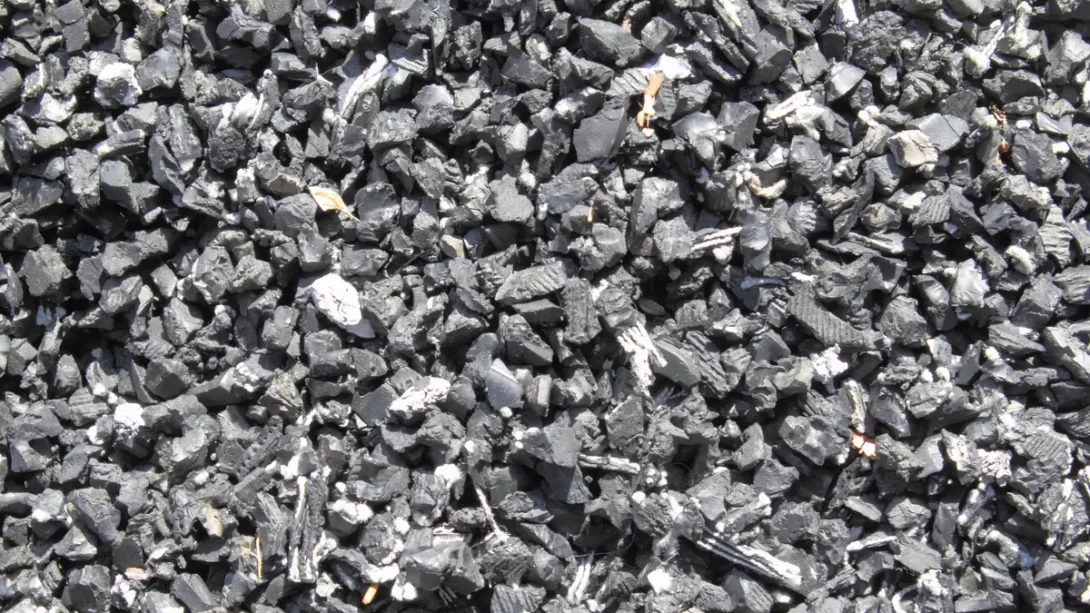Rubber mulch, commonly used in landscaping and playgrounds for its durability and shock absorbency, has become a popular choice for many homeowners. However, for dog owners, the safety of rubber mulch is a significant concern. Understanding the impact of this material on canine health is crucial, especially since dogs often come into direct contact with ground coverings in gardens and play areas.
Composition of Rubber Mulch
Rubber mulch is typically made from recycled tires, which are shredded into small, manageable pieces. These recycled tires often contain various chemicals and substances used in their original manufacturing. Common components of rubber mulch include zinc, sulfur, and carbon black. Additionally, during the breakdown process of tires, other potentially harmful chemicals can be released, such as heavy metals and volatile organic compounds (VOCs). The presence of these substances raises questions about the safety of rubber mulch when used in environments frequented by dogs.
Potential Health Concerns for Dogs
The primary health concerns for dogs regarding rubber mulch revolve around ingestion and chemical exposure. Dogs, particularly young or curious ones, may chew on or ingest rubber mulch, which can lead to gastrointestinal blockages or toxicity. The chemical composition of rubber mulch also poses risks. For instance, zinc, which is often present in high concentrations in rubber mulch, can be toxic to dogs if ingested in large amounts. Other heavy metals, like lead and cadmium, found in some rubber mulches, can also be harmful. Additionally, the VOCs released from rubber mulch as it degrades can affect air quality and potentially harm both humans and pets.
Behavioral Considerations for Dogs and Mulch
Dogs are naturally curious animals and often explore their environment with their mouth, leading to a potential risk of ingesting materials like rubber mulch. Some dogs may be attracted to the texture or scent of rubber mulch and may chew on it. This behavior increases the risk of ingestion, which can lead to gastrointestinal blockages, especially if large pieces are swallowed. Furthermore, the ingestion of rubber mulch can also introduce harmful chemicals into a dog’s system, compounding the risk.
Comparing Rubber Mulch to Other Mulching Options
When assessing the safety of rubber mulch for dogs, it is helpful to compare it with other common mulching materials. For instance, wood chips or bark mulch, while not entirely risk-free due to the possibility of splinters, typically do not contain the same level of harmful chemicals as rubber mulch. Cocoa mulch, another popular option, is known to be toxic to dogs due to the presence of theobromine. Therefore, while each mulching option has its pros and cons, rubber mulch stands out for its potential chemical risks and the hazard of ingestion.
Preventive Measures and Alternatives
For dog owners who prefer to use rubber mulch, there are preventive measures that can minimize risks. Supervising dogs while they are in mulched areas, especially if they have a tendency to chew on foreign objects, is crucial. Creating barriers or using physical covers over the mulch can also prevent access. However, for those seeking safer alternatives, natural wood mulch (excluding cocoa mulch) may be a better option. Other dog-friendly landscaping options include using stone or gravel, although these materials do not offer the same soil enrichment benefits as organic mulches.
Expert Opinions and Research
The scientific community and veterinary experts have weighed in on the use of rubber mulch, especially in areas where pets, including dogs, frequently visit. While direct research on rubber mulch’s impact on dogs is limited, experts caution against its use in pet-friendly areas due to the potential risks outlined earlier. Toxicologists highlight the presence of heavy metals and other chemicals in rubber mulch as a primary concern, especially given dogs’ propensity to ingest foreign objects. Veterinarians often advise opting for safer alternatives to avoid the risks of gastrointestinal blockages and chemical toxicity.
Conclusion
In conclusion, while rubber mulch has its advantages in landscaping, its safety for use in areas where dogs are present is questionable. The potential risks associated with chemical exposure and the physical danger of ingestion make it a less ideal choice for pet owners. When considering the safety and well-being of dogs, natural wood mulch or other pet-safe landscaping alternatives are recommended over rubber mulch.
For dog owners, understanding the potential hazards and making informed choices about landscaping materials is crucial. While the aesthetics and maintenance benefits of rubber mulch might be appealing, the health and safety of pets should be a paramount consideration. Ultimately, the decision to use rubber mulch in areas accessed by dogs should be made with caution, keeping in mind the possible risks and the individual behavior of one’s pet.




